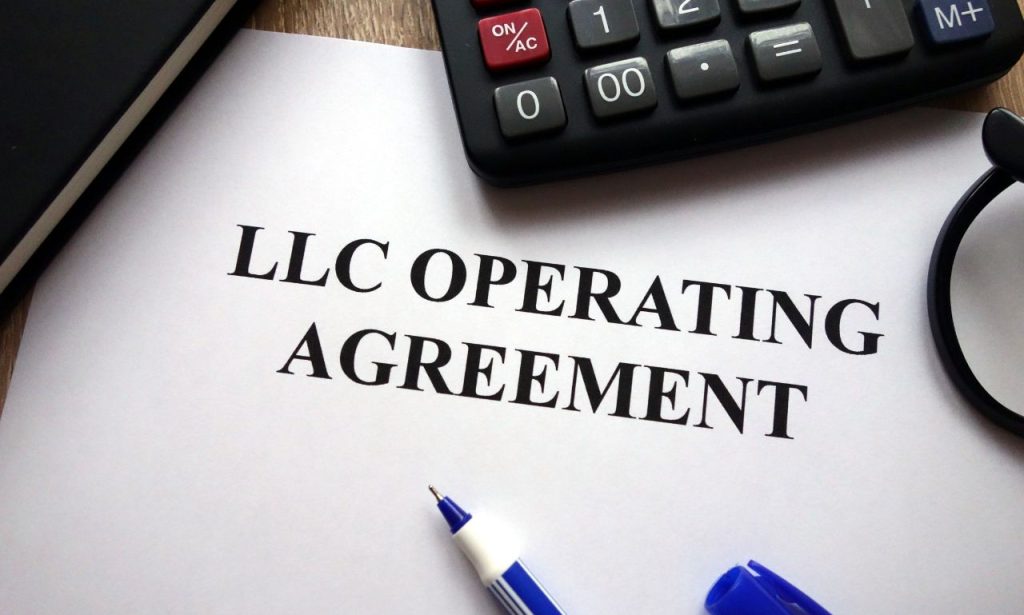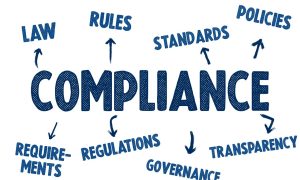Starting a business involves numerous decisions. One of the most important is choosing the right business structure. Limited liability companies (LLCs) have become increasingly popular among entrepreneurs. They offer personal liability protection and tax flexibility. Many business owners prefer LLCs for their simplicity and benefits. The process of forming an LLC varies by state. Understanding the basic requirements will help you start your journey with confidence. Let’s break down what you need to know about forming an LLC.
Choose Your Business Name

Your LLC name is your first major business decision. It serves as your brand identity in the marketplace. The name must include “Limited Liability Company” or an abbreviation. Most states require “LLC,” “L.L.C.,” or similar designations in the name. Your chosen name must be unique within your state. No other business can have the same name.
Before getting excited about a name, check its availability. Most state business filing offices have online databases. You can search these to see if your name is taken. Some states also restrict certain words in business names. Words like “bank,” “insurance,” or “university” often need special approval. Consider securing a domain name that matches your business name. This consistency helps customers find you online.
Remember that your business name will appear on all official documents. It will be on contracts, marketing materials, and business cards. Choose something professional that reflects your business purpose. Many successful businesses have simple, memorable names. The right name can make marketing much easier in the long run.
Choose a Registered Agent
A registered agent is a mandatory requirement for every LLC. This person or entity receives legal documents on behalf of your business. They accept service of process if your company faces lawsuits. The registered agent must have a physical street address in the state. P.O. boxes are not acceptable for this purpose.
You can serve as your own registered agent in most states. However, this means your personal address becomes public record. Many business owners prefer hiring a professional registered agent service. These services typically cost between $100-$300 annually. They provide privacy and ensure you never miss important documents.
Registered agents must be available during normal business hours. They must be able to receive documents in person. Some states have additional requirements for registered agents. Check your state’s specific rules before making this decision. A reliable registered agent is crucial for maintaining good standing.
Get a Copy of Your State’s LLC Articles of Organization Form
Articles of Organization is the primary document that forms your LLC. Each state has its own version of this document. Some states call it a “Certificate of Formation” or “Certificate of Organization.” The form typically requires basic information about your business. You’ll need to provide your business name and address.
The Articles document also requires information about your registered agent. You’ll list the owners (members) of the LLC in many states. Some states require you to state your business purpose. This can be specific or a general statement about lawful business activities. The management structure must be indicated in some states.
Filing fees for Articles of Organization vary widely by state. They range from $40 to $500 depending on location. Most states offer online filing options for faster processing. Paper filings typically take 5-10 business days to process. Some states offer expedited processing for an additional fee.
Draft an LLC Operating Agreement
An operating agreement outlines how your LLC will function. This internal document details ownership percentages and voting rights. It establishes procedures for making business decisions. The agreement covers what happens if a member leaves or dies. It also addresses how profits and losses will be distributed.
Most states don’t legally require an operating agreement. Having one is still highly recommended for every LLC. Without an agreement, your LLC will be governed by default state laws. These laws may not align with your intentions for the business. The operating agreement helps prevent misunderstandings between members.
Single-member LLCs benefit from operating agreements too. They establish your business as a separate entity from yourself. This strengthens your limited liability protection. The agreement can be modified as your business grows. It should be reviewed periodically to ensure it still meets your needs.
File a Beneficial Ownership Information Report
The Corporate Transparency Act now requires most LLCs to file reports. These reports identify the beneficial owners of the company. A beneficial owner is anyone who owns 25% or more of the company. It also includes individuals with substantial control over the business. This federal requirement began January 1, 2024.
New LLCs must file this report within 90 days of formation. The filing goes to the Financial Crimes Enforcement Network (FinCEN). The report includes personal information about each beneficial owner. You’ll need legal names, birth dates, and addresses. You must also provide identification document numbers.
Failure to file this report can result in serious penalties. Fines can reach up to $10,000. Criminal penalties may include imprisonment for up to two years. Some businesses are exempt from this requirement. Consult with a business attorney if you’re unsure about compliance.
Obtain EIN, Sales Tax ID, and Licenses

An Employer Identification Number (EIN) functions like a Social Security number for businesses. The IRS issues EINs free of charge through their website. You need an EIN to hire employees or open business bank accounts. Most LLCs require an EIN even without employees.
Many businesses must collect sales tax from customers. This requires a sales tax ID from your state’s tax agency. Service-based businesses may be exempt in some states. Check with your state department of revenue for specific requirements. Registration typically happens online through state tax portals.
Your business may need various licenses and permits. Requirements depend on your industry and location. Some common examples include professional licenses and health permits. Local governments often require business licenses or zoning permits. Research all requirements before starting operations to avoid penalties.
How Do I Qualify for an LLC?
The qualification process for forming an LLC is straightforward. Almost anyone can form an LLC in the United States. You don’t need to be a U.S. citizen or resident. Individual requirements vary by state, but most are minimal. Age requirements typically match the state’s legal adult age.
Some professions have restrictions on forming regular LLCs. These include doctors, lawyers, and accountants in many states. These professionals often need to form Professional LLCs (PLLCs). PLLCs have additional requirements and regulations. They provide liability protection with certain limitations.
Most states don’t require any special qualifications for LLC members. There’s no minimum capital contribution in most jurisdictions. No special education or experience is needed. This accessibility makes LLCs popular among first-time entrepreneurs. The main requirements involve proper filing and fee payment.
How Much Does an LLC Cost in NY?
New York has specific LLC formation costs that exceed many other states. The basic filing fee for Articles of Organization is $200. This fee must be paid when submitting your formation documents. Online and paper filings have the same cost in New York.
New York also has unique publication requirements. New LLCs must publish a notice in two newspapers. One newspaper must be a daily publication. The other must be a weekly publication. Both must be approved by the county clerk. This publication must run for six consecutive weeks.
Publication costs vary widely depending on your county. In Manhattan, costs can exceed $1,000. Rural counties may have fees under $100. After publication, you must file a Certificate of Publication. This certificate costs an additional $50. New York LLCs also pay an annual filing fee of $9 per member.
What do I Need to Know Before Opening an LLC?
Understanding personal liability protection is essential before forming an LLC. This protection shields your personal assets from business debts. It works only if you maintain separation between personal and business finances. Mixing funds can pierce the corporate veil. This negates your liability protection.
Tax considerations should factor into your decision. LLCs have flexible tax options. By default, they receive pass-through taxation. This means profits pass directly to members’ personal tax returns. Some LLCs can elect to be taxed as corporations. Consult a tax advisor about the best option for your situation.
Ongoing compliance requirements vary by state. Most states require annual reports or similar filings. Fees for these reports range from $0 to several hundred dollars. Missing deadlines can result in penalties or dissolution. Some states have franchise taxes or minimum taxes. Research all continuing obligations before forming.
What is Required to Start an LLC in Nebraska?

Nebraska has specific requirements for forming an LLC. The process begins with name availability search. You can search the Secretary of State’s website. Your name must include “Limited Liability Company” or an abbreviation. The filing fee for Nebraska LLC Articles of Organization is $105.
Nebraska requires a registered agent with a physical address in the state. This person must be available during business hours. You can act as your own registered agent if you have a Nebraska address. Professional registered agent services are also available. They typically charge $100-$150 annually.
Nebraska LLCs must file biennial reports every two years. These reports are due in odd-numbered years. The filing fee is $10 for these reports. Nebraska doesn’t have publication requirements like New York. The formation process is relatively straightforward in Nebraska. Most filings can be completed online.
Conclusion
Forming an LLC involves several important steps. Each state has its own specific requirements. The basic process includes choosing a name and registered agent. You’ll file Articles of Organization and create an operating agreement. New federal requirements include beneficial ownership reporting. Obtaining necessary tax IDs and licenses completes the process.
The LLC structure offers significant advantages for many businesses. Personal liability protection provides peace of mind. Tax flexibility allows for optimized financial planning. Limited paperwork makes ongoing compliance manageable. These benefits make LLCs an attractive option for entrepreneurs.
Consider consulting with business professionals before forming your LLC. Attorneys can provide guidance on state-specific requirements. Tax advisors help optimize your business structure. A small investment in professional advice can prevent costly mistakes. With proper planning, you can form your LLC with confidence.
ALSO READ: What is the Role of Trademarks in Building a Competitive Advantage?
FAQs
Most states process LLC formations within 5-10 business days. Online filings may be faster. Expedited processing is available in many states for additional fees.
Yes, non-US citizens can form LLCs in most states. Some states have additional requirements for foreign owners.
While not required, an attorney can help navigate state-specific requirements and provide valuable advice for your situation.
Yes, single-member LLCs are allowed in all 50 states. The formation process is similar to multi-member LLCs.
LLCs offer more flexibility in management and taxation, while corporations have a more rigid structure and face potential double taxation.
Yes, you can convert your existing business to an LLC by filing the appropriate formation documents with your state.




